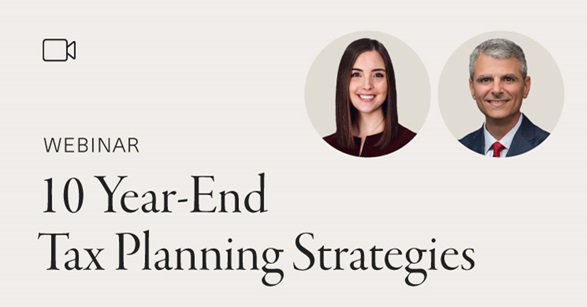- There are several different types of checks bank account holders can obtain to make payments.
- Some types of checks, such as personal checks, are more common than others.
- Each type of check has a purpose for which it is best suited, such as paying rent or purchasing a vehicle.
Although paper checks may seem like a thing of the past, they are still an essential option for payment. Paper checks are just one of the many types of checks available to access the money in your bank account. There are six core options available, all of which provide various benefits, such as security, speed and no fees.
Understanding what these different types of checks offer can help you decide which check is best for your situation. In addition to the core six, other types of checks serve more unique purposes; if the types of checks mentioned don’t fit your purpose, you may want to consider additional research.
Personal checks
A personal check is a paper slip from your bank, credit union or financial institution that is signed by you, the account holder. It comes from a personal checking account and includes the amount of money to be withdrawn, the checking account number, routing number and the payee’s name. This is generally the most common type of check and the one you may be most familiar with.
Personal checks are unsecured, meaning that if the funds are not in the issuer’s personal checking account when cashed, the check may bounce. This means the payee may not be able to cash the check if there are insufficient funds in your bank account. In some cases, checks written without sufficient funds in the associated bank account can trigger overdraft fees.
Personal checks may be required to pay rent and utility bills and are often used for peer-to-peer payments.
Cashier’s checks
Cashier’s checks draw on the bank, credit union or financial institution's funds to complete the transaction. They are signed by a representative from the financial institution, such as a teller. Often, payees request cashier’s checks — especially for larger amounts — for assurance that the check will clear.
The account owner debits the amount to their bank for the transaction and when the check is drafted, it is guaranteed by the financial institution. Cashier’s checks provide security that the individual receiving the check will receive the full amount owed to them.
Cashier’s checks are ideal for larger purchases, such as a down payment on a home or car, or a large repair or renovation.
Cashier’s checks are available in person at your bank or credit union branch; depending on the financial institution, checks can be available online. Either way, the account holder will have to work directly with the financial institution to complete the payment process.
Certified checks
Similar to a cashier’s check, certified checks are insured by the bank or financial institution. However, funds are pulled directly from the account holder’s personal checking account instead of from the bank’s funds, as in the case of a cashier’s check. These two types of checks are often confused, but they have distinct differences.
For certified checks, the bank or credit union will verify the account holder’s signature and confirm there’s enough money in their bank account to cover the transaction. Like cashier’s checks, certified checks are designed for larger expenses, often for multiple thousands of dollars.
Bank account holders work directly with a financial institution to obtain a certified check.
Electronic checks
An electronic check (commonly known as an “eCheck”) transfers funds using an online check from the payer’s account to the payee’s account. This process is typically quicker than the process for other types of checks because it’s completed online and doesn’t include any paper checks.
eChecks are different than credit cards: They take money directly from your bank account as opposed to extending credit to you. eChecks generally come with lower processing fees compared with payment via credit card — some eChecks have no fees at all.
Electronic financial transactions are processed through the automated clearing house (ACH network). You may be the payee on an eCheck or you may be on the receiving end of an ACH payment, such as when an employer pays you via direct deposit.
Many online banking accounts offer the feature of recurring eCheck payments for bills such as utility or rent payments. This way you don’t have to write a physical check and mail it off every time you want to make a payment.
Traveler’s checks
Traveler’s checks (also known as “traveler’s cheques”) are paper checks used by international travelers to pay for products and services or to purchase local currency. These checks have become less attractive for travelers through the years as credit and debit cards have become more popular.
Issuing banks, credit unions and financial institutions can typically replace lost or stolen traveler′s checks easily, which means your money will be protected in case of a lost or stolen check. This security is why many travelers opt for traveler’s checks, as cash does not offer the same protections.
Traveler's checks aren't usually offered by larger banks like First Republic, but there are still several smaller banks that continue to provide them to account holders.
Business checks
A business check is a check tied to a business's bank account (rather than a personal bank account). Business checks allow the account holder to pull from their business’s funds instead of their personal account.
Business checks can be used for a variety of purposes, from payroll checks to vendor payments. In many cases, financial institutions offering business banking services also offer eChecks for business.
Which check type is right for me?
The right type of check for you depends on what you need from your transaction. To help choose the right check for your needs, compare the major considerations of the different types of checks.
|
Check Type |
Uses and Considerations |
|
Personal Checks |
|
|
Cashier’s Checks |
|
|
Certified Checks |
|
|
eChecks |
|
|
Traveler’s Checks |
|
|
Business Checks |
|
It can be a good idea to inquire about the types of checks available to you at your bank, credit union or other financial institution. This allows you to be prepared to select the one that will best fit your needs and circumstances when the time arises.




